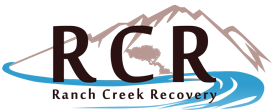Dry January, is a method many individuals try to start the New Year off on a better foot, trying to reset their bodies after a holiday of indulgence of food & alcohol. Dry January often focuses on abstaining from alcohol entirely for the month of January, and can have several potential benefits for people, leading them to feel better in various ways. However, for those with more serious alcohol dependency, Dry January can be a risky approach to breaking addiction to alcohol.
For alcoholics, it is critical to seek professional help and medical advice before attempting to stop drinking. Treatment for alcoholism typically involves a more long-term strategy, including both physical and psychological support. If someone with alcohol dependency is interested in participating in something like Dry January, it should be done under the guidance and supervision of healthcare professionals.
5 Reasons Dry January May Be Dangerous for Alcoholics:
- Withdrawal Risks of Dry January: For someone with alcohol dependency, stopping alcohol consumption cold turkey can lead to severe and potentially life-threatening withdrawal symptoms. These symptoms can include tremors, seizures, hallucinations, and delirium tremens. Medical supervision is often necessary for safe withdrawal.
- Need for Professional Support: Alcohol dependency is a complex condition that typically requires more than just a temporary period of abstinence. It often needs a comprehensive treatment plan that includes medical intervention, counseling, support groups, and sometimes medication.
- Risk of Relapse: Without proper support and treatment, there’s a high risk of relapse after the end of the month. Relapse can be particularly dangerous, as tolerance to alcohol decreases during periods of abstinence, increasing the risk of overdose.
- Psychological and Behavioral Aspects: Alcoholism is often linked with underlying mental health, psychological or social factors. These factors need to be addressed through therapy or support groups for effective and long-lasting recovery.
- Misleading Sense of Security: Participating in Dry January might give some alcoholics a false sense of control over their drinking, which could delay seeking appropriate help.
If you or a loved one is struggling with alcohol abuse and are in need of help, give us a call (877) 997-8931. We are here to help 24/7.
Meet Some of Our Caring Staff at Ranch Creek Recovery
Our staff is the most compassionate and knowledgeable rehab team in the area. We are family owned and operated, and would love to hear your story.
Learn MoreNot Sure Whether You Have a Severe Drinking Problem?
Identifying alcoholism, or alcohol use disorder (AUD), involves recognizing a pattern of alcohol use that leads to significant impairment or distress. Here are key indicators to consider:
- Craving or Strong Urge to Drink: Feeling a powerful, often uncontrollable desire to drink alcohol.
- Inability to Limit Drinking: Consistently drinking more or for a longer time than intended, or finding it difficult to stop or cut down on drinking.
- Withdrawal Symptoms: Experiencing withdrawal symptoms like shaking, sweating, nausea, insomnia, depression, irritability, fatigue, loss of appetite, or headaches when alcohol effects wear off.
- Tolerance: Needing to drink increasingly larger amounts of alcohol to feel its effects.
- Neglecting Responsibilities: Failing to fulfill major work, school, or home responsibilities due to drinking.
- Continued Use Despite Problems: Continuing to drink even though it’s causing trouble with your family, friends, health, job or impacting your interest in other positive & healthy activities.
- Spending a Lot of Time Drinking: Spending a lot of time drinking, being sick, or getting over hangovers.
- Drinking in Dangerous Situations: Using alcohol in situations where it’s physically hazardous, such as driving a car or operating machinery.
- Continued Use Despite Physical or Psychological Problems: Continuing to drink even though you know it’s making you feel depressed, anxious, adding to another health problem, or after having had a memory blackout.
- Failed Attempts to Stop: Wanting to stop drinking but being unable to do so.
If you or someone you know is showing signs of alcoholism, it’s important to seek help. Alcoholism is a serious condition, but it’s treatable. Ranch Creek Recovery can offer guidance on treatment options, which may include therapy, medication, and support groups. Remember, recognizing the problem is the first step towards recovery.













